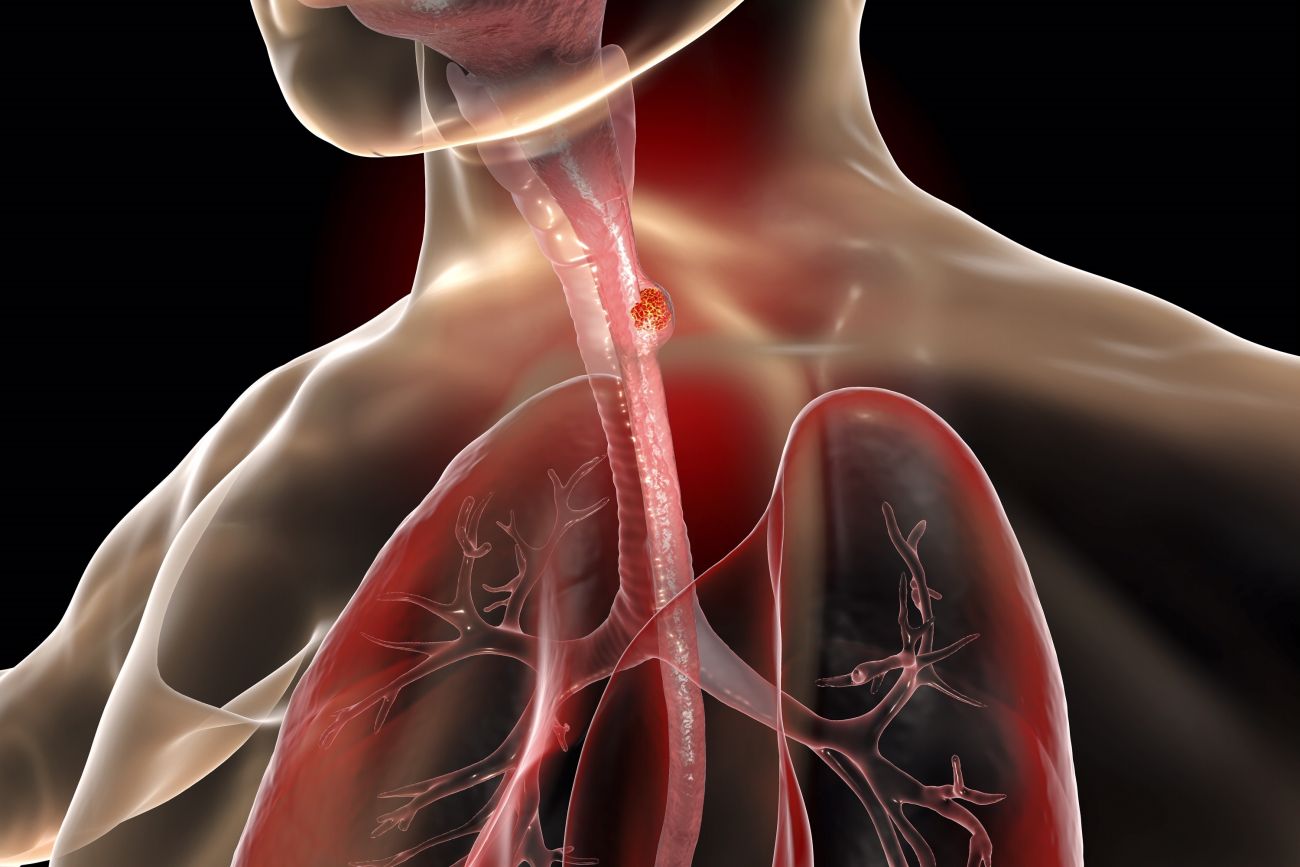The most promising recent treatment advances for esophageal cancer include newer targeted and immunotherapy drugs.
Medical therapy uses drugs to treat cancer. Different classes of drugs — chemotherapy, targeted therapy and immunotherapy — work in different ways. Your treatment team will select the drug or drugs best for your cancer. These types of medical treatments are also called systemic therapy because the drugs circulate through your entire body system.
Targeted therapy for esophageal cancer
Just as no two cancer patients are exactly alike, the same can be said for their cancers. Each tumor is genetically different from another, and these differences can translate to one patient responding to treatment while another with the same diagnosis does not.
Targeted therapy uses different types of drugs than chemotherapy. Targeted therapies are able to home in on cancer cells by targeting a particular characteristic, or a specific protein that’s only found on the cancer cells and not healthy ones. Roswell Park’s pathologists will analyze your tumor to determine whether your esophageal cancer can be treated with one of these targeted therapies:
- Traztuzumab (Herceptin,® Ogivri®). This drug is a targeted therapy known as a monoclonal antibody. Some esophageal tumor cells have too much of a protein called human epidermal growth factor receptor 2 (HER2) which causes them to grow and spread quickly. Trastuzumab attaches to this protein on the cancer cells and prevents them from multiplying. This therapy may also stimulate your own immune system to attack cells that have traztuzumab attached to them.
- Traztuzumab deruxtecan (Enhertu). This drug is called an antibody drug conjugate because it combines a monoclonal antibody (traztuzumab) with another compound that blocks the action of a certain enzyme that cancer cells need to grow.
- Ramucirumab (Cyramza®). This drug is a targeted therapy know as an angiogenesis inhibitor, which means it stops cancer cells from creating new blood vessels which a tumor needs to live. Vascular endothelial growth factor (VEGF) is a protein that causes new blood vessels to form. Some cancer cells have receptors on them that collect VEGF and help the tumor grow. Ramicirumab is a drug that blocks these receptors so the VEGF protein cannot attach to them and help grow new blood vessels.
Immunotherapy for esophageal cancer
Immunotherapy is a type of cancer treatment that aims to trigger or boost your own immune system into action and fight against the cancer. An important part of your immune system are a type of white blood cells called T cells which normally attack viruses, bacteria and other harmful things in your body.
One way that cancer cells are able to hide from your T cells is that some cancer cells have a protein (PD-L1) on them that connects with a protein (PD-1) on the T cells. This connection, called an immune checkpoint, seems to communicate to the T cells that there’s no need to attack, and the cancer cells are able to multiply and grow unchecked.
An immunotherapy drug called a checkpoint inhibitor prevents the two proteins from connecting, allowing your T cells to find and kill the cancer cells. Your esophageal cancer will be tested for certain markers to determine whether the checkpoint inhibitor drug, pembrolizumab (Keytruda®) or nivolumab (Opdivo®), might benefit you.
Chemotherapy for esophageal cancer
Chemotherapy is a medical treatment that uses drugs to kill cancer cells by interrupting the process that cancer cells use to multiply and grow. Chemotherapy drugs attack cells in the body that grow rapidly, such as cancer cells. Agents used in esophageal cancer are delivered intravenously (through an IV) as well as taken orally.
The regimen that’s chosen for you will be based on various factors, such as your cancer’s stage and whether you have any other medical conditions. Your medical oncologist may choose one or more of the following agents:
- Capecitabine (Xeloda®)
- Carboplatin
- Cisplatin
- Docetaxel (Taxotere®)
- Epirubicin (Ellence®)
- Etoposide (Etopophos®)
- Fluorouracil (5-FU)
- Irinotecan (Camptosar®)
- Oxaliplatin (Eloxatin®)
- Paclitaxel (Taxol®)
